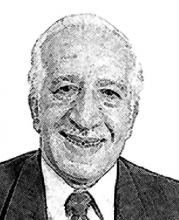You are here
A move with possible wide impact
Mar 07,2015 - Last updated at Mar 07,2015
The Muslim Brotherhood in Jordan is confronting this week a dilemma whose ramifications will impact the political life as well as the rank and file of tens of thousands of Islamic activists.
Former head of the Brotherhood, lawyer Abdel Majid Thneibat, along with nearly 200 members of the movement, managed to establish a new Muslim Brotherhood group.
He kept the title of the society, and thus can claim for his group multibillion-dollar investments, including the Islamic hospital in Amman, Al Zarqa private university, several educational establishments, nine clinics and other profit-generating projects.
Thneibat’s move was facilitated by authorities who resented statements issued by the old Brotherhood against Jordan’s peace treaty with Israel and the war on Daesh.
The Muslim Brotherhood is the largest, richest and best organised political group in the country.
Its active members exceed 50,000 ideologically committed, hardline, militarily trained believers.
One of Thneibat’s supporters, Khalil Asker, claims that an invisible organisation, a secret apparatus, runs and controls the key posts within the Brotherhood, spending unlimited funds of money to fix election results and to manoeuvre the whole group into political positions compatible with Hamas.
Many leadership figures of East Bank origin were stunned to find themselves out of their key posts as a result of the internal election process, which has been rigged and manipulated, according to Asker’s claims, by hardline radicals whose sudden affluence raised many questions, due to their relationship with Hamas and how they managed to buy votes.
This split within the Brotherhood now cannot be characterised as a clash between hawks and doves. The two sides share the same ideology. Both share the political objective of having the concept of an Islamic caliphate restored.
Three Brotherhood leadership figures, Rheil Gharaibeh, Jamil Dheisat, and Nabil Kofahi, all of East Bank origin, started a year ago an attempt to restructure the movement and correct its course.
They came to be called the Zamzam group, in reference to the hotel where they gathered nearly 1,000 of their followers.
Last week, all Zamzam founders, along with Thneibat, were dismissed as members of the Jordanian Muslim Brotherhood.
But what will be the ramifications of this split on the rank and file members?
Will it lead to more radicalisation of university students belonging to the Muslim Brotherhood, leading them away from the current moderate line to fall into the trap of Jihadi Salafist dogma like that of Al Qaeda or Daesh?
Foresight and sagacious thinking are required from the elders of the Brotherhood in order for the political compass not to be lost.













